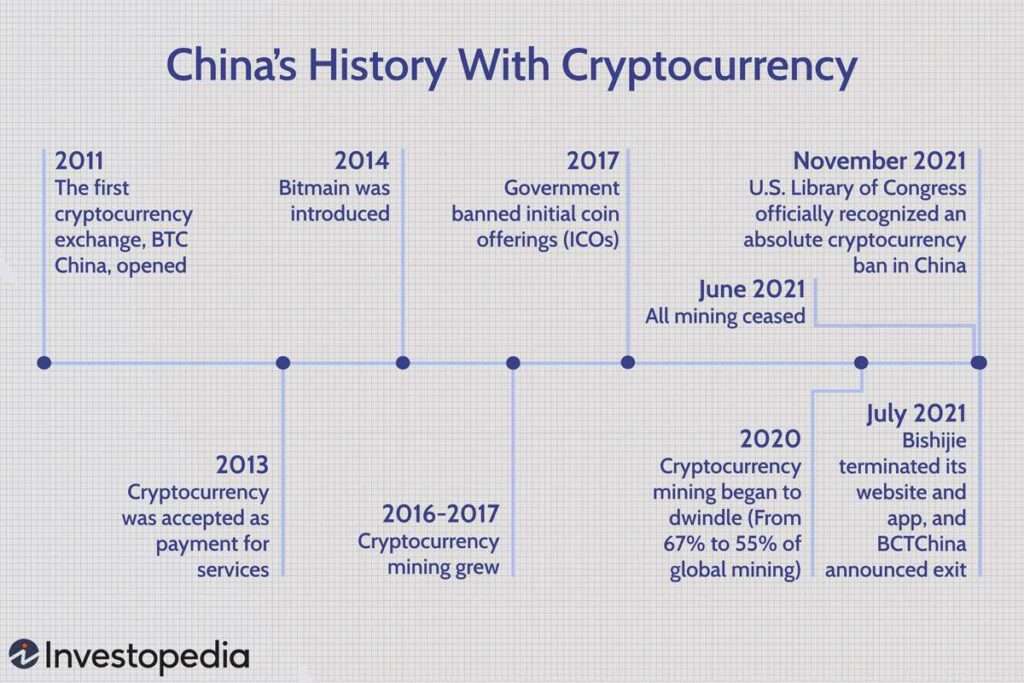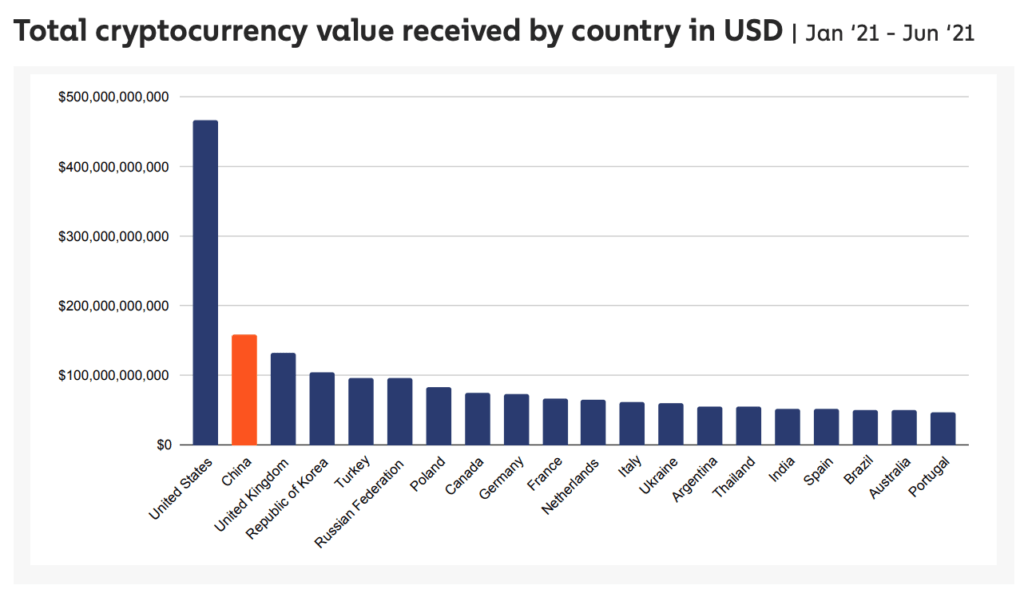In recent years, the rapid growth of the cryptocurrency industry has raised concerns about investor protection, financial stability, and money laundering. To address these issues, governments around the world are introducing regulatory frameworks to govern the crypto sector. Hong Kong, known as a global financial hub, has also taken steps to establish clear guidelines for the licensing of cryptocurrency-related activities. In this article, we will explore Hong Kong’s crypto licensing guidelines, their significance, and their impact on the industry.
Hong Kong, a renowned global financial hub, is stepping up its game in the world of cryptocurrencies with the imminent release of cryptocurrency exchange licensing guidelines. This pivotal move by the Hong Kong Securities Futures Commission (SFC) aims to provide a clear regulatory framework, instill investor confidence, and promote the growth of a secure and vibrant crypto market. Let’s delve into the details of Hong Kong’s crypto licensing guidelines and their implications for the industry.
Table of Contents
ToggleIntroduction
The rise of cryptocurrencies has revolutionized the financial landscape, providing individuals and businesses with alternative means of conducting transactions and raising funds. However, this decentralized, and rapidly evolving industry also presents unique challenges for regulators. Hong Kong, with its thriving financial market and tech-savvy population, recognized the need to establish a comprehensive regulatory framework to mitigate risks and foster the growth of the crypto industry.
Hong Kong's regulatory framework

In Hong Kong, the Securities and Futures Commission (SFC) is the primary regulatory authority responsible for overseeing the securities and futures markets. The SFC has been actively monitoring the development of the crypto market and has taken a proactive approach to regulate virtual assets and their trading platforms.
The need for crypto licensing guidelines
The emergence of cryptocurrencies and initial coin offerings (ICOs) has led to concerns regarding fraud, money laundering, and investor protection. The lack of clear regulations and oversight has made the crypto industry vulnerable to abuse and illicit activities. To safeguard the interests of investors and maintain market integrity, it became imperative for Hong Kong to establish licensing guidelines for virtual asset service providers (VASPs).
Key components of Hong Kong's crypto licensing guidelines
Hong Kong’s crypto licensing guidelines encompass various aspects related to the operation of VASPs. These guidelines impose registration requirements on entities engaged in virtual asset trading, custodian services, and other relevant activities. VASPs are required to meet stringent criteria related to anti-money laundering (AML) and counter-terrorist financing (CFT) measures, capital adequacy, and financial soundness.
- While awaiting confirmation, most prospective Virtual Asset Service Provider (VASP) licensees are eagerly anticipating the opportunity to offer crypto-related services to investors under the supervision of the SFC.
- According to a recent report by Reuters, the distinguished trading platforms OSL and Hashkey Group have successfully secured licenses granted by the SFC, placing them among the exclusive group of authorized entities in the crypto industry.
- A recent report suggests that Hong Kong’s crypto ambition has received a subtle nod from Beijing, indicating a positive trajectory for the industry.
- Despite Hong Kong’s aspirations to become a leading crypto hub, not all trading platforms have chosen to remain in the long run.
- Bitget, a crypto exchange holding $1.4 trillion in reserve assets, has announced its decision to discontinue services for its Hong Kong customers once the Hong Kong VASP regime becomes effective on June 1.
In the latest edition of Asia Express magazine, notable highlights include 3AC’s exceptional performance, a significant surge in Bitcoin mining, and the captivating world of Bruce Lee NFTs.

Embracing Clarity: The Power of Licensing Guidelines
Cryptocurrency exchanges have long operated in a regulatory grey area, leaving investors and participants uncertain about the level of protection and oversight. However, Hong Kong’s crypto licensing guidelines are set to change the game. By providing a clear and well-defined regulatory framework, these guidelines will create a level playing field for exchanges and foster investor trust.
The introduction of licensing guidelines offers several benefits. Firstly, it enhances credibility and trust in the crypto industry. Clear regulatory standards enable investors to make informed decisions and engage with confidence. This, in turn, can attract institutional investors and traditional financial institutions, expanding the reach and legitimacy of the crypto market.
Secondly, licensing guidelines promote market integrity by deterring fraudulent activities and illicit behavior. By requiring exchanges to implement robust anti-money laundering (AML) and know-your-customer (KYC) measures, Hong Kong aims to protect investors and contribute to the overall stability of the financial system.
Moreover, clear guidelines provide a conducive environment for innovation. Startups and entrepreneurs can better understand the regulatory expectations and compliance requirements, allowing them to structure their business models accordingly. This regulatory certainty encourages the development of new products and services, contributing to the growth and evolution of the crypto ecosystem.
Challenges and Criticisms: Striking the Right Balance
While the introduction of crypto licensing guidelines in Hong Kong is undoubtedly a positive step, it is not without its challenges and criticisms. Striking the right balance between regulation and innovation is a key challenge. Excessive or burdensome regulations could stifle the development of the crypto industry and deter startups from entering the Hong Kong market. It is crucial to find an equilibrium that ensures investor protection while allowing room for experimentation and growth.
Another criticism pertains to potential barriers to entry for small businesses. Some argue that stringent licensing requirements and high capital thresholds may disproportionately affect smaller players, impeding their ability to compete with established counterparts. Regulatory authorities must consider the needs of different market participants, ensuring that licensing guidelines do not create unnecessary barriers to entry.
A Global Perspective: Comparing Hong Kong's Approach
Hong Kong is not alone in its pursuit of crypto regulation. Countries worldwide are implementing their own regulatory frameworks to address the challenges posed by cryptocurrencies. By comparing Hong Kong’s licensing guidelines with those of other jurisdictions, we can gain valuable insights into the global landscape of crypto regulation.
For instance, countries like Switzerland and Singapore have also adopted a proactive approach to regulate the crypto industry while fostering innovation. These jurisdictions have implemented licensing regimes and established regulatory sandboxes that provide a controlled environment for businesses to test their innovative ideas.
On the other hand, some countries have taken a more cautious approach, imposed stricter regulations or even banned certain crypto activities altogether. China, for example, has banned ICOs and imposed restrictions on cryptocurrency trading platforms. The regulatory landscape varies significantly across jurisdictions, highlighting the complex nature of regulating a rapidly evolving industry.
Is it Time to Shift Focus to the China Coin Phenomenon?

In the current year, there has been a noticeable strengthening of the correlation between Bitcoin (BTC) and Chinese equities, particularly the CSI 300 Index. Although this correlation remains relatively modest, hovering around 20%, it presents an intriguing development that warrants closer attention to crypto projects originating from China.
As we delve into the renewed interest in Chinese cryptocurrency narratives, let’s redirect our focus to a selection of distinctive Chinese coins. These coins not only exhibit promising fundamentals but also deserve our keen observation. Here are a few noteworthy options worth monitoring:
- Conflux Network ($CFX): Conflux currently stands as the sole regulatory-compliant public blockchain in China, with its headquarters based in Beijing. Recently, Conflux announced an integration with Little Red Book, often referred to as China’s equivalent of Instagram.
- Nervos Network ($CKB): This public blockchain from China has been selected by the Blockchain Service Network and boasts the distinction of being one of the oldest functioning proof-of-work blockchains.
- Linear Finance ($LINA): Based in Hong Kong, Linear Finance is a cross-chain exchange platform. Notably, the company has partnered with HexTrust, a key asset custody player in Hong Kong, to provide DeFi services.
- Sandbox ($SAND): Sandbox has been chosen to develop metaverse solutions in Hong Kong. Additionally, the company has formed a partnership with HexTrust to offer exclusive services related to metaverse land.
- Alchemy Pay ($ACH): Selected as the crypto payments provider in Hong Kong, Alchemy Pay plays a significant role in facilitating digital transactions.
- Measurable Data Token ($MDT): This Hong Kong-based data sharing app places its focus on the AI crypto narrative, catering to the growing demand for artificial intelligence technologies.
These Chinese coins present intriguing opportunities within the crypto market, showcasing their unique features and potential for growth. By monitoring their progress, investors can stay abreast of the latest developments in the dynamic Chinese crypto landscape.
Conclusion
Hong Kong’s recent strides towards establishing crypto-friendly regulations signify a momentous leap forward, unlocking a multitude of opportunities for a whole new cohort of investors. This remarkable progress, combined with China’s formidable economic prowess and the escalating interest in digital assets, paints an optimistic outlook for the world of Chinese tokens.
The immense economic influence wielded by China, coupled with its insatiable curiosity regarding digital assets, lays the groundwork for a future brimming with promise for Chinese tokens. Admittedly, we must exercise caution and navigate the strict regulatory landscape with prudence. Nevertheless, these developments undeniably indicate a positive trajectory towards positioning China as a prominent hub for pioneering crypto innovation.
However, it is crucial to remain cognizant of potential roadblocks that lie ahead. The impending introduction of a digital currency by China’s central bank may introduce challenges, while geopolitical tensions could cast a shadow over the widespread adoption of Chinese tokens.
Yet, as China strategically injects capital to invigorate its economy, we may witness an influx of investors gravitating towards the flourishing Chinese cryptocurrency token market. This surge in interest could fuel heightened popularity and facilitate further integration of these tokens into the broader global cryptocurrency ecosystem.
Despite the potential challenges that may arise, the overall outlook for Chinese tokens remains promising. As is customary in the realm of crypto, vigilance and adaptability are paramount. Therefore, it is imperative to keep a watchful eye on this evolving landscape, as momentous shifts may be on the precipice of realization!
FAQ
- What are the penalties for non-compliance with the licensing guidelines? Non-compliance with the licensing guidelines can result in severe penalties, including fines and imprisonment.
- How long does it take to obtain a crypto license in Hong Kong? The timeframe for obtaining a crypto license in Hong Kong can vary. It depends on factors such as the completeness of the application, the complexity of the business model, and the efficiency of the regulatory process. Generally, it may take several months to complete the licensing process.
- Are there any specific requirements for decentralized exchanges (DEXs)? Yes, decentralized exchanges (DEXs) are also subject to the crypto licensing guidelines in Hong Kong. However, due to their decentralized nature, there may be additional considerations in terms of compliance and regulatory oversight. DEXs need to ensure that they have robust mechanisms in place to address AML and CFT risks, even without a centralized authority governing the platform. The SFC may provide specific guidance or requirements for DEXs to operate within the regulatory framework.
- Can overseas companies apply for a crypto license in Hong Kong? Yes, overseas companies are eligible to apply for a crypto license in Hong Kong. The licensing guidelines are not restricted to domestic entities. However, overseas companies must demonstrate their ability to comply with the regulatory requirements and meet the criteria set by the SFC. They may need to establish a presence or partnership in Hong Kong to ensure effective supervision and compliance.
- Will the licensing guidelines apply retroactively to existing crypto businesses? The exact application of the licensing guidelines to existing crypto businesses may depend on the specific circumstances and transitional provisions outlined by the regulatory authorities. It is essential for existing businesses to assess their compliance with the guidelines and engage with the SFC to determine any requirements or actions necessary to ensure compliance. Retroactive application may be possible in certain cases to ensure a level playing field and to address potential regulatory gaps.
In conclusion, Hong Kong’s crypto licensing guidelines signify a significant step towards regulating the crypto industry in the region. By establishing clear requirements for virtual asset service providers, Hong Kong aims to enhance credibility, protect investors, and promote market integrity. These guidelines also foster innovation by providing a framework that balances regulation with the need for growth and development. As the crypto industry continues to evolve, it is crucial for businesses and stakeholders to stay informed and adapt to the changing regulatory landscape.
Reference
Check the report – Here
here is a article to make you wallet more safe
